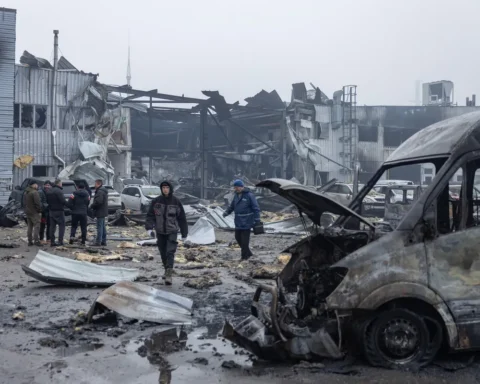According to Bloomberg, new U.S. sanctions against Russia’s largest energy companies have caused concern in China, where both state-owned and private refiners now face mounting pressure: they must maintain stable oil supplies without violating American restrictions.
About 20% of China’s crude oil imports — roughly 2 million barrels per day in the first nine months of this year — come from Russia. This makes Moscow one of China’s key suppliers of raw materials for the petrochemical industry, which produces diesel, gasoline, and plastics.
Washington’s New Blow: Rosneft and Lukoil Blacklisted
President Donald Trump’s administration has added Rosneft and Lukoil to its sanctions list, expanding a series of measures that the U.S., the European Union, and the United Kingdom have been applying to buyers of Russian oil. According to Western governments, the sanctions are intended to limit the Kremlin’s revenue streams and its ability to finance military operations in Ukraine.
Under the U.S. Treasury’s order, all transactions involving these two companies must be completed by November 21.
Risks for Beijing and New Delhi
The largest buyers of Russian crude — China and India — are now facing a difficult choice. Cooperation with sanctioned entities carries the risk of secondary sanctions, which could result in exclusion from Western banking systems, loss of access to dollar settlements, and refusal of cooperation from traders, insurers, and shipping companies that form the backbone of the global commodities market.
Traders point out that particular concern stems from the role of Western corporations as investors and operators in major oil-producing regions across the Middle East and Africa. Chinese and Indian firms that continue dealing with sanctioned Russian companies risk being shut out of large international projects.
Cheap Oil or Market Access — A Costly Dilemma
If Beijing chooses to comply with U.S. sanctions, it will lose access to discounted Russian crude, which has helped keep energy prices low for both industry and consumers.
Meanwhile, other countries — including those involved in Lukoil’s Basrah project in Iraq and the Caspian Pipeline Consortium in Central Asia — are already feeling the ripple effects of the sanctions.
China’s Response: “We Oppose Unilateral Sanctions”
As oil prices surged, Beijing sharply criticized Washington’s decision.
“China consistently opposes unilateral sanctions that lack a basis in international law and have not been authorized by the United Nations Security Council,” said Guo Jiakun, spokesperson for China’s Foreign Ministry, during a daily press briefing.
Earlier, the United Kingdom had also imposed sanctions on Rosneft, Lukoil, and Shandong Yulong Petrochemical Co., a Chinese refiner importing Russian crude. The move rattled traders, and Western suppliers have since become wary of dealing with the private Chinese firm.
Additionally, new U.S. sanctions have affected major Chinese ports, including Rizhao and Dongjiakou, key transit points for Russian and Iranian oil.
Northern Refineries and the ESPO Pipeline Dependence
At the core of Russia–China oil trade lies a long-term contract between Rosneft and state-owned CNPC (China National Petroleum Corp.) for ESPO crude deliveries through a pipeline to China’s northern Daqing region, home to major refineries.
According to traders, these facilities depend almost entirely on Russian feedstock, meaning any disruption could seriously impact operations.
It remains unclear whether pipeline supplies — roughly 800,000 barrels a day — will be affected by the sanctions, given the government-to-government nature of the project. CNPC did not respond to Bloomberg’s email inquiries, and phone calls to the company went unanswered.
Eastern Route: Kozmino Port and Private Refineries
Both Rosneft and Lukoil also export ESPO crude through Russia’s eastern port of Kozmino, supplying private refiners in Shandong province and other coastal facilities.
According to data from analytics firm Kpler, these two companies accounted for about one-quarter of all Russian oil exports to China last year.
Thus, the escalating sanctions pressure from the United States and its allies on Russia’s energy sector is inevitably reverberating through China. Beijing now finds itself caught between geopolitical loyalty and economic pragmatism. As Bloomberg notes, in its effort to maintain both energy stability and independence from Western influence, China is being forced to explore new ways to balance politics and power.
This article was prepared based on materials published by Bloomberg. The author does not claim authorship of the original text but presents their interpretation of the content for informational purposes.
The original article can be found at the following link: Bloomberg.
All rights to the original text belong to Bloomberg.


















